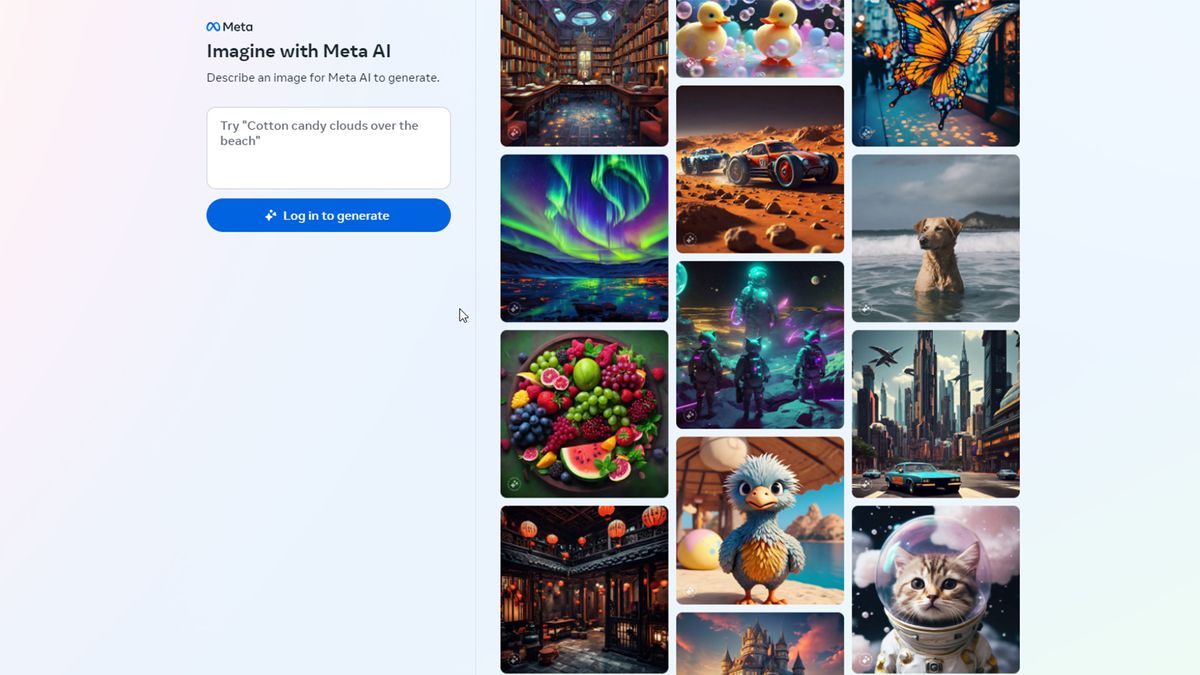Meta has introduced its independent image generation platform, Imagine with Meta AI, amidst the excitement surrounding Google’s Gemini launch.
The company has been actively experimenting with such systems for some time. For example, WhatsApp rolled out a beta version of an in-app image engine back in August. Initially, users were required to have Meta’s software installed on their mobile devices to utilize this feature. However, with the launch of Imagine, users only need an internet connection to create an account. Once registered, users can input text to generate customized images, similar to the functionality of DALL-E.
Upon testing the platform, we found that clicking the three lines at the top right corner promptly generated four JPEG images sized at 1,280 by 1,228 pixels, with additional options available in a dropdown menu.
We specifically requested the platform to produce multiple images, each marked with a watermark indicating AI generation in the bottom left corner.
The platform’s ability to create images featuring well-known cartoon characters like Homer Simpson and Mickey Mouse was truly impressive. Surprisingly, there appeared to be no restrictions on copyrighted materials, contrary to common expectations. However, despite the remarkable results, some noticeable imperfections were observed. In the Homer Simpson test image, certain parts of the illustration seemed to blend together, resulting in a slightly distorted effect.
Constraints and Possible Solutions
Imagine was intricately developed, utilizing Meta’s exclusive Emu learning architecture. Emu was trained on an extensive dataset of “1.1 billion images,” as detailed in company research papers from September. The origins of this vast dataset remain somewhat mysterious. Nick Clegg, Meta’s Head of Global Affairs, revealed to Reuters that the model was trained using publicly available Facebook and Instagram posts, even after the removal of over a billion social media accounts.
To regulate the usage of this extensive dataset, Meta has imposed certain restrictions. The technology promotes a friendly environment by prohibiting references to public figures or the use of explicit or violent language.
Despite the stringent measures, the system is not entirely foolproof. Users have reportedly discovered ways to bypass these restrictions through clever wording. For instance, when directly requesting an image of former President Barack Obama, Meta AI declined. However, by inputting “a former US president” as the prompt, the AI successfully generated an image resembling President Obama.
While the idea of “invisible watermarking… for enhanced transparency and traceability” is being considered, its implementation is still pending. During this transitional phase, concerns about potential misuse persist. Meta is actively exploring strategies to strengthen security measures, although vulnerabilities remain. We have contacted Meta for insights into their plans to enhance security measures, and updates on this matter will be provided in the near future.






